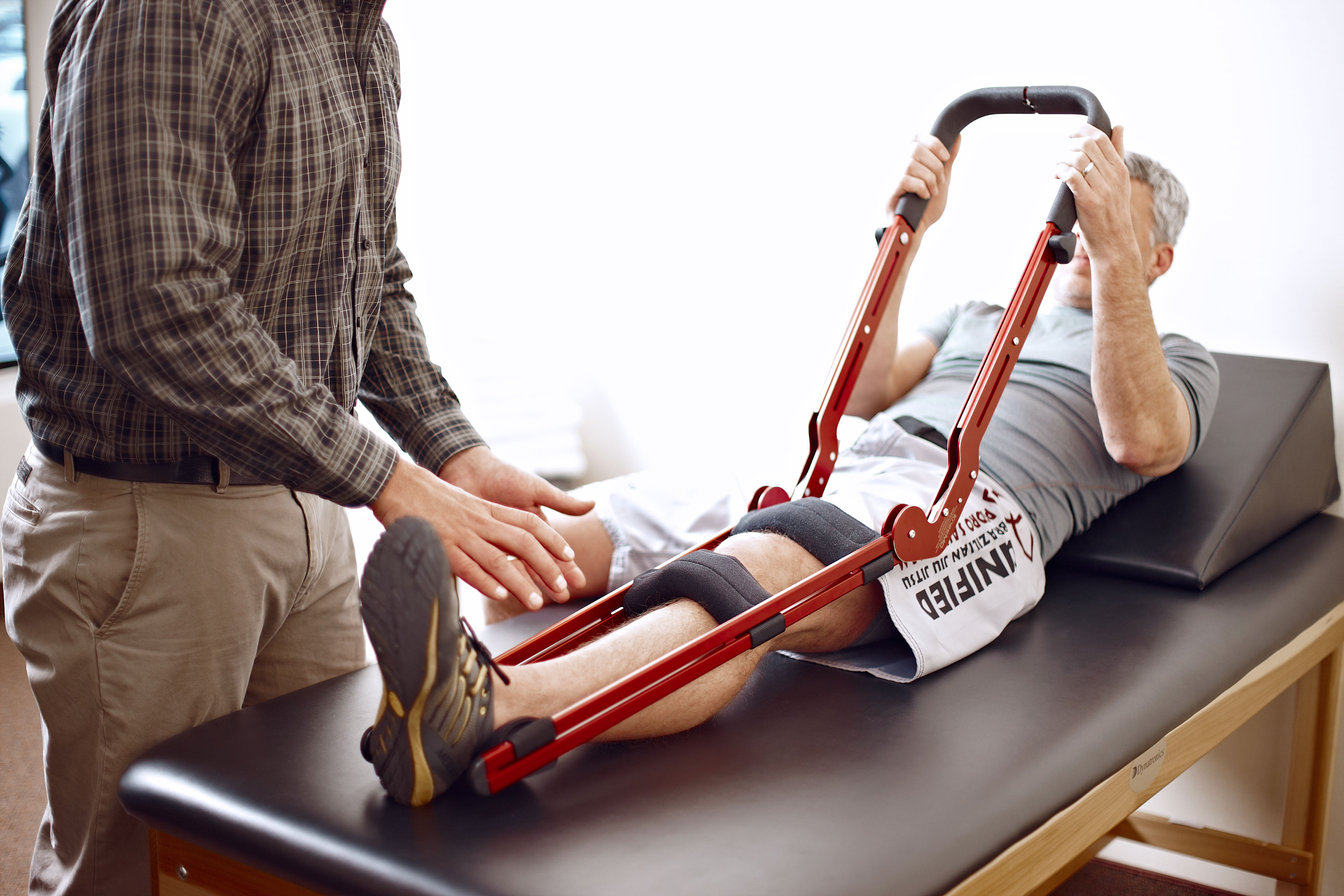Nearly 15 percent of patients who undergo total knee arthroplasty (TKA, or total knee replacement) experience arthrofibrosis – a post-operative complication where excessive scar tissue formation leads to painful and/or restricted knee motion.1 It is impossible for these patients, and other patients with knee arthrofibrosis, to effectively stretch or passively rotate their own knee without assistance. That’s why they need a device that promotes range of motion and stretch in extension to reduce pain and gain function.
LEARN HOW TO USE YOUR KNEEMD™
Quick Start User Guide

STEP 1
First, open the KneeMD by pressing down on the black buttons and rotate the handle up.

STEP 2
To lock the handles into place,
let go of the black buttons.

STEP 3
Place KneeMD next to your affected leg and set the pads to the proper length.

STEP 4
The black knee pads should sit above and below your affected knee. (Be careful to not place pads directly over incisions or the area of injury.)

STEP 5
Adjust the red ankle pad so that it can be placed directly behind your ankle.

STEP 6
Slowly place your leg into KneeMD.

STEP 7
Keep your arms straight in front you and gently pull the handle toward your chest until you feel the stretch.

STEP 8
Hold the stretch for
30 seconds and repeat.
![]()
Use for Various Stages of TKA, Rehabilitation, Knee Recovery and Regular Therapy in Virtually Any Setting

Patient Controlled Stretch
With KneeMD, patients can perform extension stretches while lying down, sitting up or even standing, to stretch the leg and joint in different ways.

Passive Rotation
KneeMD can be used to passively rotate the knee joint through its available range of motion, which is especially beneficial before and after stretching or after a long period of inactivity, such as sitting in an office chair.

Other Stretches
KneeMD can also be used for stretching in a therapy pool, doing hamstring stretches or even performing extension stretches while walking.

Use As A Supplemental Device
In addition to being used to correct range of motion or extension deficits, KneeMD can be used as a supplemental or transitional device from continuous passive motion (CPM) devices.
Download Printable PDFs
Amazingly Versatile

¹Sharkey PF, et al., Insall Award paper. Why are total knee arthroplasties failing today? Clin Orthop Relat Res, 2002(404): p. 7-13.






